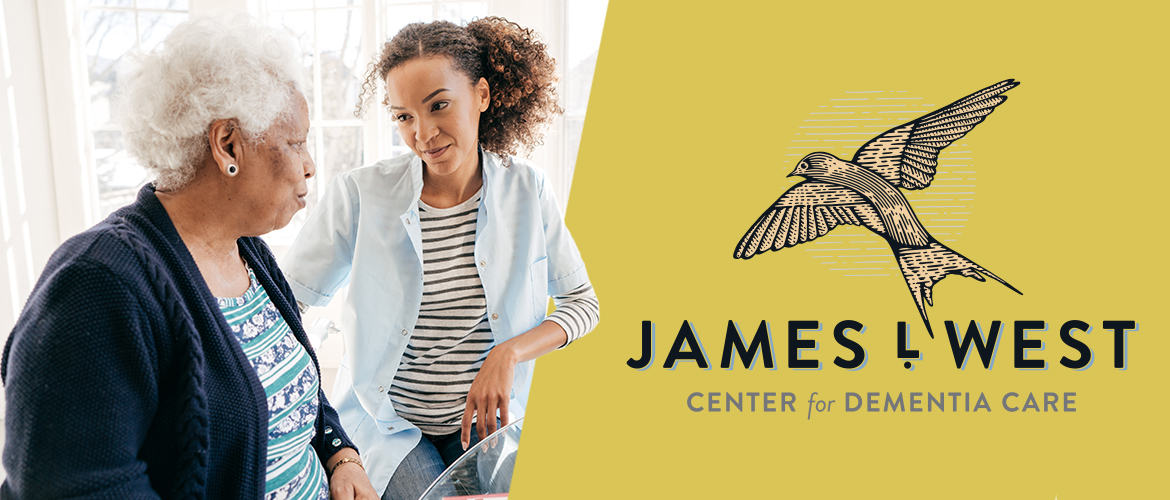Asking for help caregiving for someone with dementia is difficult. Often caregivers are reluctant to ask for help for a variety of reasons.
As rewarding as caregiving can be, it can also be very difficult and may cause extreme emotional, financial and physical challenges. Caregivers often feel like they’re on call 24/7.
As the disease progresses, the challenges of caring for a loved one at home increase, and too often, caregivers neglect their own physical and mental health.
The effects of long-term stress take a toll on the caregiver, often causing their own health to suffer. Asking for and accepting help with caregiving can be the key to being a happier, healthier caregiver.
The James L. West Center for Dementia Care offers free courses for family caregivers on stress management, family dynamics, asking for help and more.
Why it’s so hard for caregivers to ask for help
Caregivers often feel they have to take care of their loved one on their own, especially when caring for a spouse. They may feel like no one else would do it as well as they can, or they aren’t sure exactly what help they need.
When caregiving gets hard, caregivers often feel guilt or remorse that they can’t handle it on their own.
This is especially true when they are caring for a spouse. They promised in sickness and in health, but the reality is they could not have predicted the situation they’re in now.
When a person’s life revolves around caring for another person, it’s hard to stop and think about what they need help with.
The James L. West family education team recommends sitting down and making a list of things that you always need help with, whether it’s meals, errands, home maintenance, or visiting with your loved one.
“If you have this list ready, then when people ask how they can help, you have options for them to choose from,” said Jaime Cobb Tinsley, vice president of education. “If you don’t take the time to think about what you need or where you could use help, you won’t have an answer when someone offers to help.”
How to ask for help as a caregiver
The team at James L. West does a lot of education on how to ask for help.
“The way that you ask for help is important,” said Hollie Glove, director of family education and support. “You can be assertive without being aggressive or passive-aggressive. There’s a difference, and we talk a lot about that.”
Glover gave the following examples.
Passive aggressive: Saying, “Your father really does need a haircut.” Then sitting back and waiting for the son or daughter to take the initiative.
Aggressive: Saying, “You don’t ever do anything for your father. You don’t ever give me any help.”
Assertive: Saying, “Your father needs a haircut. Would you mind taking him sometime this week?”
She encourages caregivers not to wait until they’re completely stressed out before asking for help to avoid being aggressive or passive-aggressive.
Caregivers need to be honest with their family members about what’s going on. Otherwise, their children or other family members are caught off guard when they’re asked to help.
“Your children aren’t mind readers,” Glover said. “If you’ve been telling them for six months that everything is OK, they think everything’s OK. They don’t know what’s happening.”
If you haven’t been honest with your family members, call a family meeting and tell them what’s really going on. Then don’t be afraid to ask them for the help that you need.
Getting the right help
Not all help is equal. To be successful, match the person to what it is you need to have done.
If your brother is uncomfortable with handling Mom or Dad’s confusion, he is not the one to ask to come sit and visit with Mom or Dad while you mow the lawn or run errands. Ask him instead to run your errands for you or to handle the lawn mowing.
When you’re caring for your spouse, tell your children how they can help.
“I tell caregivers not to deny their children the opportunity to serve you in this way,” Glover said. “I’ll tell them in the support groups that you’re not being a burden.”
She’s talked with adult children who are frustrated that their caregiving parent won’t let them help care for their other parent.
“They want you to ask. This is their mama or their daddy and they want to spend time with them,” Glover said.
Caregivers often have friends who are asking what they can do to help. Tell them what would be helpful.
Let the Sunday School class bring the Bible study to you and your loved one. Let your ladies’ group clean your house.
Receiving and accepting help can alleviate some of the stress of caregiving, making you a better, more prepared caregiver.
For more caregiver resources or support group information, visit James L. West’s Free Caregiver Training and Support page.

